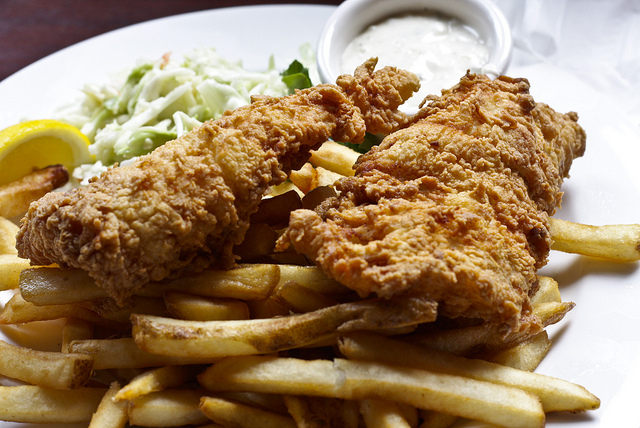It’s midterms. You’ve got three exams, a group project with an absent partner and a 10-page research paper to submit with a complete appendix of sources you don’t even remember. Hunched over your laptop, you reach for another handful of microwave popcorn only to discover you’ve demolished the whole bag in 20 minutes. A week later you find out you passed with flying colors and decide to reward yourself with three slices of chocolate cake — you deserve it.
A scene many college students are familiar with is this culture of eating in response to stress and indulging in food as a reward for accomplishments. Emotional eating is a common trope we see in media. Anytime a leading lady loses a lover, you find her spooning ice cream by the pint. We are subconsciously taught that when we go through emotional turmoil, we should reach for calories. Even I struggle with this at times. The very evening I began writing this I went through several negative experiences which resulted in me taking several circles around the dining hall and even ending my day with the cliché spoon-in-pint-in-bed moment. But why do I resort to this? Have I been socialized to believe the best pacifier is at the end of a fork or is there something more at play?
The answer isn’t concrete. Of course expectations and social standards have set my brain to draw the connection from emotions to food, but there may be a reason for it. Humans require food for physical and mental energy. But the body’s initial reaction to stress might make you think otherwise. In the short-term, stress releases the hormone epinephrine which can put your appetite on hold until a situation passes. Yet, this goes against the stress-eating we grow to expect. Long-term stress, on the other hand, triggers something else.
When stress doesn’t go away the body releases the hormone cortisol, which is also released when the body detects low blood sugar. Cortisol supplies an immediate energy source and triggers the body to use up glucose stores, which increases appetite. When the worries of life build up, cortisol levels can get stuck in their elevated position.
In the immediate moment, high-fat, salty and sugar-heavy foods boost energy and can initially counteract that elevated hormone and create a stress-free illusion. This is why foods like creamy mac ‘n’ cheese, ice cream, and warm, salty mashed potatoes are considered comfort foods. At the time of consumption, these foods can seem to temporarily squash the immediate cortisol rise and get rid of your stressful feelings.
On the other side, in the absence of stress, we often seek out the same foods in the wake of accomplishment. Sometimes just living through a stressful or emotionally taxing situation will trigger the all-too-familiar-phrase, “I deserve it.”
Both ends of the spectrum, stress and reward, may be explained by the bodily reactions to certain foods that are known to cause a release of dopamine or other hormones that stimulate pleasure. This may be part of the reason that we want to put them into our body in times that we are unhappy or feel we should be rewarded.
As mentioned, many of these immediate dopamine boosting foods align with the stereotypical comfort foods. Chocolate, dairy, carbohydrates and sugar all cause similar reactions that can be perceived as a burst of energy or stimulation. Yet they can become addictive because of the immediacy of the reaction and aftermath or “crash” when those effects wear off. In order to maintain raised dopamine or blood sugar levels, you’re forced to continue eating whatever comfort food you’ve chosen.
So is it a problem? It really varies. When binge eating and emotional eating leads to periods of extremely unhealthy food consumption and guilt, it can be dangerous. Repetitive cycles of surprising your body with an extremely heightened amount of calories one day can also have sometimes painful effects. But if eating while you do your homework or in the aftermath of your breakup calms your nerves long enough to set you on the right track, who am I to take that away from you?
Emma Waldman can be reached at [email protected].




















Alison Huetter • Sep 19, 2018 at 11:39 am
Wow! Interesting and relatable. What about binging on kale chips, baked chocolate coconut flakes or plain popcorn? Does that count as binging? I try to do that to keep Ben and Jerry at bay.